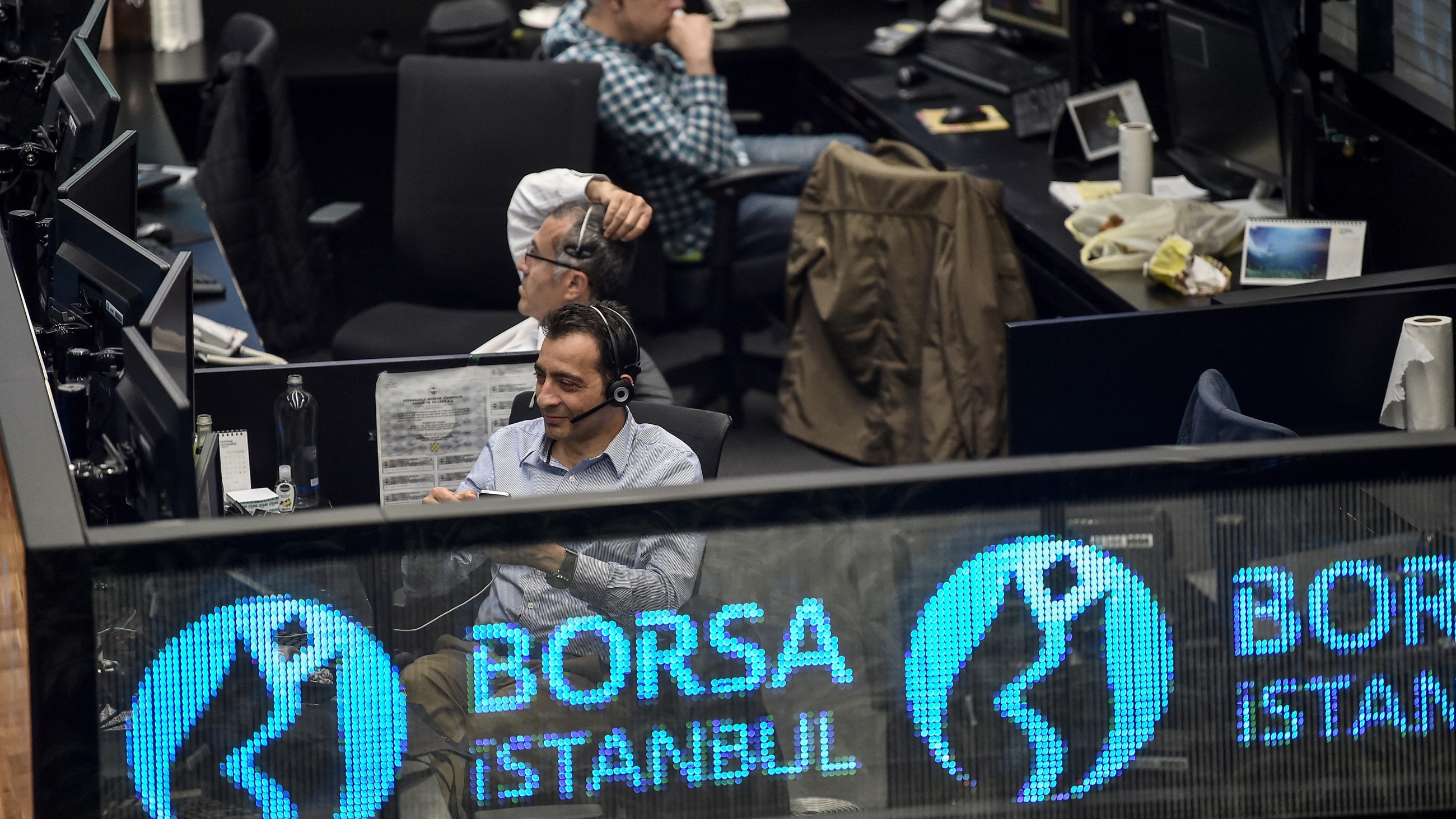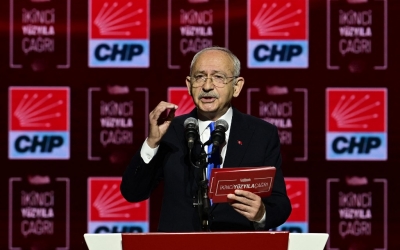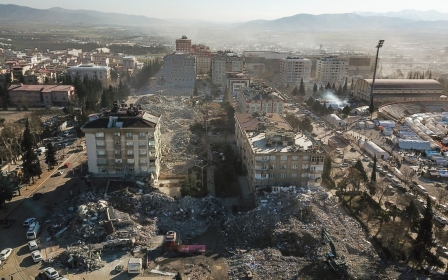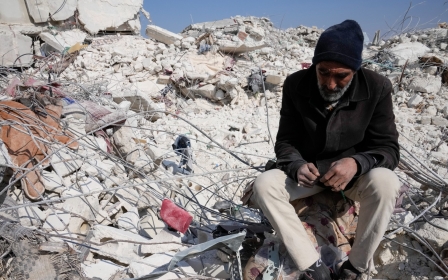Turkey props up stock market before reopening

Turkey is gearing up to reopen its stock market on Wednesday with massive cash injections aimed at mitigating losses suffered in the aftermath of last week's deadly earthquakes.
Trading at Borsa Istanbul stock exchange was suspended on 8 February after the benchmark BIST index went into free fall.
Authorities have introduced a few measures before trading is set to resume on Wednesday, hoping to prop up the market.
Private pension funds will have to divert up to 30 percent of government contributions received into stock purchases, according to a new regulation announced by authorities on Tuesday in the country’s Official Gazette. This triples the previous requirement and gives funds 10 days to comply.
In addition, the government is suspending a 15 percent holding tax on share buybacks and upping the limit that private pension funds are allowed to allocate to a single company from one percent to five percent.
New MEE newsletter: Jerusalem Dispatch
Sign up to get the latest insights and analysis on Israel-Palestine, alongside Turkey Unpacked and other MEE newsletters
Increasing pension funds’ market exposure is likely to support prices at a volatile time but could pose risks down the road.
The new measures, forcing funds to boost their stakes in the stock market, came after criticism of the handling of last week’s market rout.
The benchmark index lost 16 percent in the two days after twin quakes rocked southern Turkey on Monday last week. Trading temporarily resumed Wednesday and plunged another seven percent before authorities suspended trading.
The Borsa Istanbul Index soared almost 200 percent last year, making it one of the world’s top performers. Those gains were largely driven by investors fleeing to stocks to protect against historic inflation. Some have warned of a market bubble.
Bloomberg also reported on Tuesday that Turkey plans to suspend some gold imports to ease the economic fallout of the quakes.
The Turkish lira was already one of the world’s worst-performing currencies last year and has come under renewed pressure amid the quakes. On Tuesday it was trading near an all-time low of 18.85 to the US dollar.
The moves come as the quake response shifts from finding survivors to grappling with what is expected to be a long recovery.
In a report published over the weekend, a Turkish business group estimated that the cost of the quakes on Turkey’s economy could be $84.1 billion - or about 10 percent of the country's GDP.
The measures to protect investors also come as a debate emerges about moving ahead with parliamentary and presidential elections scheduled for May.
Middle East Eye reported on Monday that officials from the ruling Justice and Development Party (AKP) have been exploring ways to delay the elections due to severe infrastructure damage after the earthquakes, as well as public anger against the government over its handling of the disaster. The leader of the opposition has rejected the idea.
Middle East Eye delivers independent and unrivalled coverage and analysis of the Middle East, North Africa and beyond. To learn more about republishing this content and the associated fees, please fill out this form. More about MEE can be found here.





